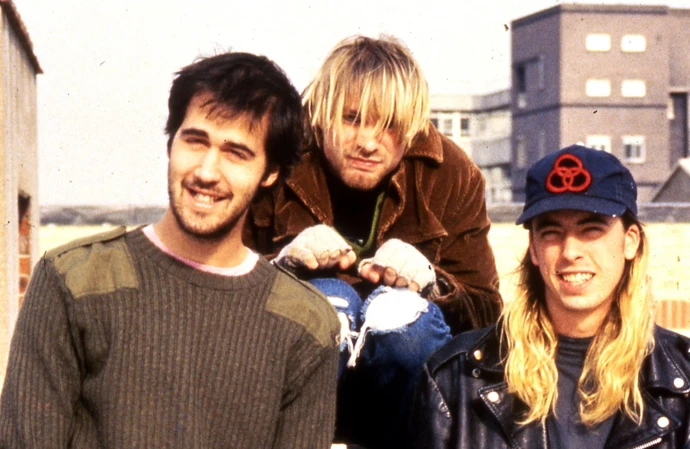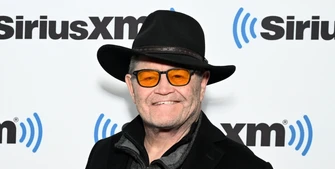Late producer Steve Albini gave Nirvana In Utero ultimatum
Steve Albini had a clear set of rules for producing a record and didn't want to be paid royalties by Nirvana.

Nirvana's acclaimed late music producer, Steve Albini, would only produce their album if there was "no interference from the front office bulletheads".
The studio wizard - who was renowned in the alternative music world - sadly died on Tuesday (07.05.24), after suffering a heart attack at his recording studio, Electrical Audio.
And Nirvana - the classic lineup of which comprised late frontman Kurt Cobain and surviving members Dave Grohl and Krist Novoselic - have shared a letter they received from Albini laying out his conditions and plans to produce what ended up being their much-lauded final LP, 1993’s ‘In Utero’.
Albini was of the belief that it should only take a week to make an album an advised the 'Come As You Are' rockers to ignore all influence from their record label bosses.
He wrote: “I think the very best thing you could do at this point is exactly what you are talking about doing: bang a record out in a couple of days, with high quality but minimal ‘production’ and no interference from the front office bulletheads.
“If that is indeed what you want to do, I would love to be involved.”
The producer insisted he would have "no part" in their record if they were swayed by the corporate machine.
He went on: "If, instead, you might find yourselves in the position of being temporarily indulged by the record company, only to have them yank the chain at some point (hassling you to rework songs/sequences/production, calling-in hired guns to ‘sweeten’ your record, turning the whole thing over to some remix jockey, whatever…) then you’re in for a bummer and I want no part of it.”
Albini insisted their music needed to be authentic and have no outside influence.
He continued: “I’m only interested in working on records that legitimately reflect the band’s own perception of their music and existence. If you will commit yourselves to that as a tenet of the recording methodology, then I will bust my a** for you. I’ll work circles around you.”
And he warned them he was forthcoming with his feedback if they committed a "heaving mistake".
He said: “I consider the band the most important thing, as the creative entity that spawned both the band’s personality and style and as the social entity that exists 24 hours out of each day. I do not consider it my place to tell you what to do or how to play. I’m quite willing to let my opinions be heard (if I think the band is making beautiful progress or a heaving mistake, I consider it part of my job to tell them) but if the band decides to pursue something, I’ll see that it gets done.”
Generous Albini refused to take any royalties from the band and explained he would like to be paid "like a plumber".
He wrote: “I would like to be paid like a plumber: I do the job and you pay me what it’s worth. The record company will expect me to ask for a point or a point and a half. If we assume three million sales, that works out to 400,00 dollars or so. There’s no f****** way I would ever take that much money. I wouldn’t be able to sleep.”
The late musician fronted bands such as Big Black, which Kurt was a huge fan of, Rapeman and Shellac, while he also produced albums for Pixies, PJ Harvey, and Jimmy Page and Robert Plant.
















